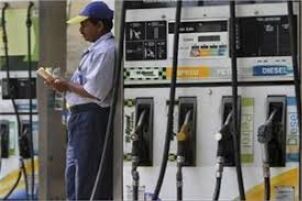Spiralling fuel prices
International oil market indicates that the pain has just begun and more excruciating times are in store for Indian consumers

The OPEC-plus meeting has produced a shocker, with Saudi Arabia announcing a unilateral cut of 1 million barrels per day for the next two months, setting the oil market on a spiral. The Saudi action belied all expectations, as the market was predicting a hike in production
Petrol prices have hit an all-time high, with pumps charging Rs 84.20 in the national capital. The previous highest was recorded in October 2018. There have also been proportionate increases in the price of diesel, though it is still below the peak recorded in July last year.
This is indeed bad news. But signals coming from the international oil market are suggesting that the pain has just begun and more excruciating times are in store for consumers in countries like India.
The OPEC-plus meeting has produced a shocker, with Saudi Arabia announcing a unilateral cut of 1 million barrels per day for the next two months, setting the oil market on a spiral. The Saudi action belied all expectations, as the market was predicting a hike in production. Even without the other members of the cartel mimicking the Saudis, the cut has fired the boosters for the producers. So, they may not immediately announce a cut. Market analysts see the Saudi gambit sending the crude balance in the next couple of months into deficit, which is what Riyadh had plotted.
There is a saving grace that Russia would not join the cut, keeping output at least steady for the winter months, for they have considerations other than price alone to reckon with. A more urgent concern for the country is the potential damage to capacity that a reduction would cause to its old wells and oil fields. Russia and Kazakhstan got away with increasing their output in February and March, while other members are now left to bite the bullet. Additionally, several other producers are seen likely to slip on compliance so as to capture the growing needs of Asian energy demand and recovery. The unilateral move is believed to have angered producers like the UAE and Iraq, both of which were envisaging a hike in output instead.
Refineries are already balking at the Saudi surprise cut, questioning the reasoning as margins are already squeezed. A higher crude flat price does not help their cause. There is also the additional uncertainty caused by the second wave of COVID-19 pandemic even as the vaccination schedules in most countries, including the US, have fallen behind schedule.
But oil bulls are jubilant at the Saudi move, which one analyst described as 'offering not just a soft pillow, but a full set of blankets, bed covers and most likely the bed itself'.
It is a misfortune for the Indian public that the government considers it as more the merrier when it comes to crude price hikes. The government's receipts from excise duty, the bulk of which comes from petrol, diesel, and crude oil, have seen a sharp 40 per cent year-on-year jump in the first seven months of this fiscal year. Every hike means additional revenue for the government, which has been squeezing consumers even when international prices were falling. Crude prices account for only a third of the retail prices, while two parts are on account of taxes, commissions and profit for all stakeholders.
In the current fiscal itself, the government has raised taxes on petrol and diesel by Rs 13 and Rs 16 respectively in two tranches, through a special additional excise duty and the additional excise duty, collected as road and infrastructure cess.
Unless the government reneges on its policy of making money on petroleum products irrespective of the shape of the international market, the public faces the prospects of heightened pain in the days to come. The key to fuel prices in India is not the international market, but the policy of the central and state governments, which are for the misfortune of Indian public skewed in favour of the government and the oil companies.
There is pressure building up on the government to moderate the policy to bring some relief to the consumers as the so-called open market policy has worked against the interests of the public. There are reports that the Centre may be considering a cut in the excise duty on petrol and diesel, which are already way beyond tolerable levels. With assembly elections approaching in a few crucial states, including West Bengal where the BJP is making a do or die bid to capture power, high fuel prices are indeed a major embarrassment for the government.
Views expressed are personal



